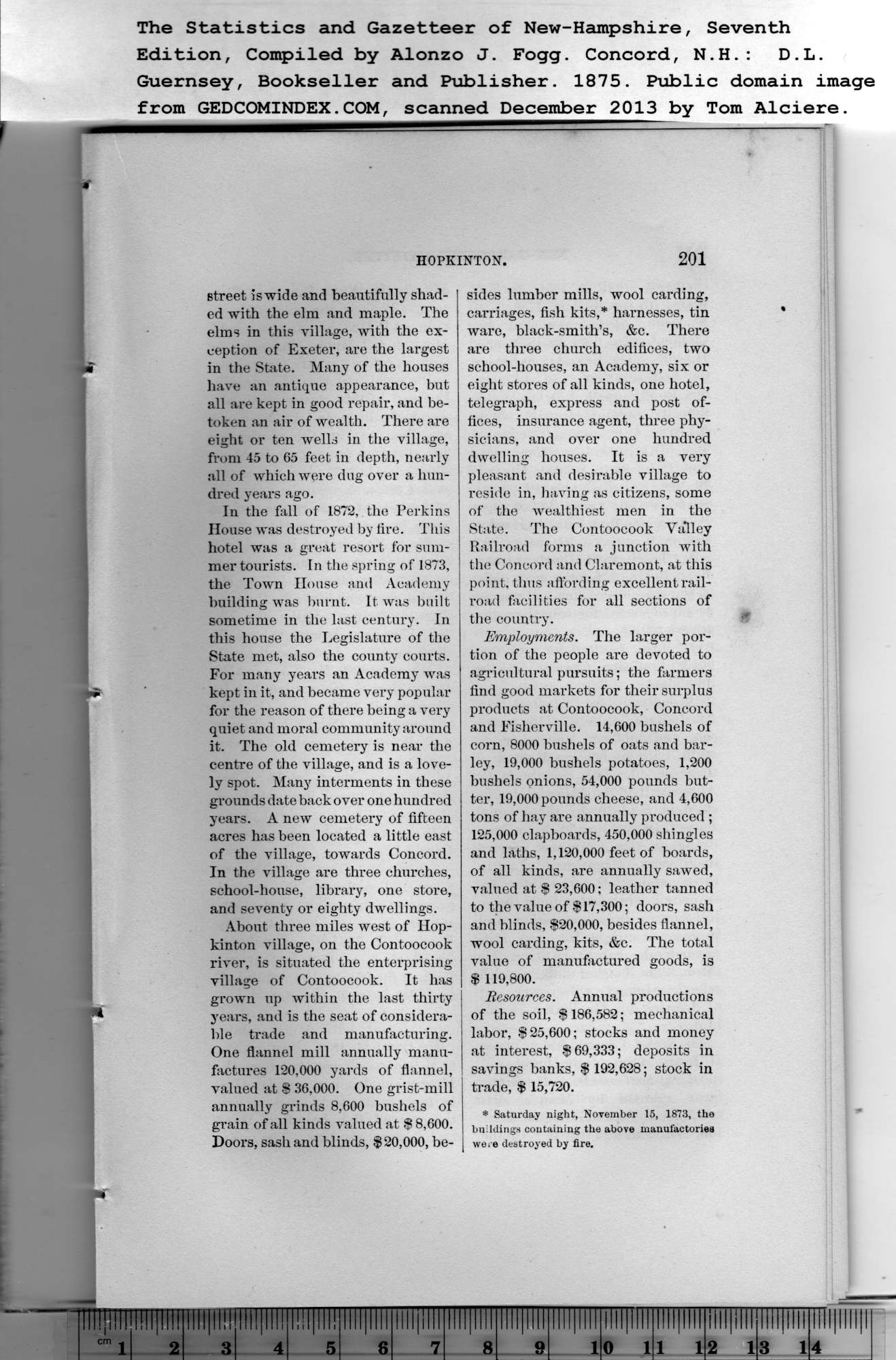|
street is wide and beautifully shad-
ed with the elm and maple. The
elms in this village, with the ex-
ception of Exeter, are the largest
in the State. Many of the houses
have an antique appearance, but
all are kept in good repair, and be-
token an air of wealth. There are
eight or ten wells in the village,
from 45 to 65 feet in depth, nearly
all of which were dug over a hun-
dred years ago.
In the fall of 1872, the Perkins
House was destroyed by fire. This
hotel was a great resort for sum-
mer tourists. In the spring of 1873,
the Town House and Academy
building was burnt. It was built
sometime in the last century. In
this house the Legislature of the
State met, also the county courts.
For many years an Academy Avas
kept in it, and became very popular
for the reason of there being a very
quiet and moral community around
it. The old cemetery is near the
centre of the village, and is a love-
ly spot. Many interments in these
grounds date back over one hundred
years. A new cemetery of fifteen
acres has been located a little east
of the village, towards Concord.
In the village are three churches,
school-house, library, one store,
and seventy or eighty dwellings.
|
About three miles west of Hop-
kinton village, on the Contoocook
river, is situated the enterprising
village of Contoocook. It has
groAvn up within the last thirty
years, and is the seat of considera-
ble trade and manufacturing.
One flannel mill annually manu-
factures 120,000 yards of flannel,
valued at 8 36,000. One grist-mill
annually grinds 8,600 bushels of
grain of all kinds valued at $ 8,600.
Doors, sash and blinds, $20,000, be-
sides lumber mills, wool carding,
carriages, fish kits,* harnesses, tin
ware, black-smith’s, &c. There
are three church edifices, two
school-houses, an Academy, six or
eight stores of all kinds, one hotel,
telegraph, express and post of-
fices, insurance agent, three phy-
sicians, and over one hundred
dwelling houses. It is a very
pleasant and desirable village to
reside in, haA’ing as citizens, some
of the wealthiest men in the
State. The Contoocook Valley
Railroad forms a junction with
the Concord and Claremont, at this
point, thus affording excellent rail-
i*oad facilities for all sections of
the country.
Employments. The larger por-
tion of the people are devoted to
agricultural pursuits; the farmers
find good markets for their surplus
products at Contoocook, Concoi'd
and Fisherville. 14,600 bushels of
corn, 8000 bushels of oats and bar-
ley, 19,000 bushels potatoes, 1,200
bushels onions, 54,000 pounds but-
ter, 19,000 pounds cheese, and 4,600
tons of hay are annually produced ;
125,000 clapboards, 450,000 shingles
and laths, 1,120,000 feet of boards,
of all kinds, are annually saAved,
valued at $ 23,600; leather tanned
to the value of $17,300; doors, sash
and blinds, $20,000, besides flannel,
wool carding, kits, &c. The total
value of manufactured goods, is
$ 119,800.
Resources. Annual productions
of the soil, $ 186,582; mechanical
labor, $25,600; stocks and money
at interest, $69,333; deposits in
savings banks, $ 192,628; stock in
trade, $ 15,720.
* Saturday night, November 15, 1873, the
buildings containing the above manufactories
were destroyed by fire. |
